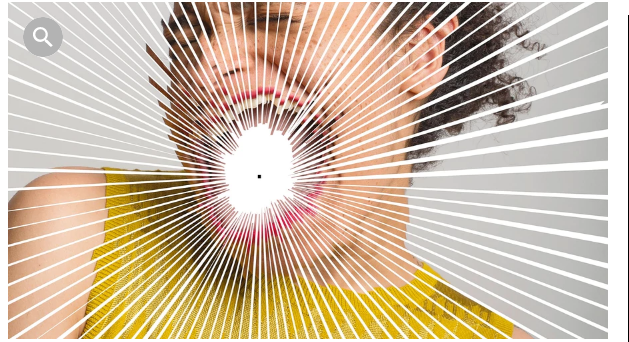
Sharon Stephenson talks to sufferers of a condition where eating in a communal situation or travelling with others is nearly impossible.
It was the soup that did it: a steaming bowl of broccoli and blue cheese that sent Lisa Milton* into a blind rage.
“I was on a first date and the guy couldn’t eat his soup without slurping,” says the 32-year-old Wellingtonian.
Lisa asked politely if he could eat more quietly. Then she asked less politely.
“There’s no way to eat soup without making a noise,” he replied, telling her to back off, only using different words.
That’s when Milton’s heartbeat quickened, she became extremely agitated and felt the burn of pure white rage.
“I leapt up from the table, slapped him across the face and threw his bowl of soup to the floor before running out of the restaurant in tears.”
It might be at the pointy end of the behavioural spectrum, but Milton’s reaction is actually a neuro-physiological disorder called misophonia, where auditory stimuli – and sometimes visual stimuli – sets off a classic fight-or-flight response.
Howick-based psychologist Louis Van Niekerk, who works with misophonia patients, says the little-known disorder can be triggered by particular sounds that are often bodily related or repetitive in nature.
“People with misophonia can be driven to outbursts of panic, fear, disgust or rage simply by the sounds people make going about their day – chewing, slurping, sniffling, throat-clearing, humming, tapping and so on,” says Van Niekerk. “It’s not just someone being dramatic or angry, misophonia is an immediate, uncontrollable brain-driven response to stimuli. When people hear the sound that triggers them, they want to get out of the room and if they can’t, they want to attack it.”
The term misophonia, which is believed to be linked to OCD, was first coined in 2002 by Margaret and Pawel Jastreboof, a husband-and-wife research team from Atlanta’s Emory University. Translated literally from Greek as “hatred of sound”, the term is sometimes also referred to as selective sound sensitivity syndrome.
In 2013, researchers at Amsterdam’s Academic Medical Centre found that when misophonia sufferers heard certain human sounds, they exhibited “a pattern of intense anger, impulsive reactions and worry about losing control”. The most common irritants were eating sounds, such as lip-smacking, chewing and swallowing; breathing sounds including snorting and sneezing; vocal sounds such as throat-clearing or humming; and hand sounds, such as typing and pen-clicking. Environmental sounds such as dogs barking, dishes clattering or lawn mowers can also cause sufferers to explode, while visual triggers include someone jiggling their leg or fidgeting with their hands.
“The cause of misophonia is unknown but research suggests it can start in childhood, when sufferers may make a negative association with certain sounds. This can generate fear, irritation or rage for the rest of their lives,” says Van Niekerk, who treated his first misophonia client eight years ago and estimates he’s seen about 35 since then.
Many sufferers, he adds, are often affected by those closest to them. “So while someone eating on a bus or in a cafe might not bother them, when a family member eats too loudly it can send them into a rage.
He tells me about a 13-year-old client who was enraged by the sound of her father rubbing his moustache. “She simply couldn’t cope with him touching his upper lip.”
For Milton, the realisation that something wasn’t quite right started in her early teens.
“At meal times, the sound of my family chewing would bring me out in a cold sweat. It got to the stage where I wanted to reach across the table and strangle my father, who was the loudest chewer in the world. I would either have to wear ear plugs or eat in another room.”
Naturally, her family and friends assumed she was neurotic at best, insane at worst. “They couldn’t understand how normal things, often things they couldn’t even hear, would make me tense and disgusted. I’m sure there were many times they were ready to drop me off at a psychiatric institution.”
That’s when the guilt would kick in. “I felt guilty for asking people to stop doing something they weren’t even aware was a problem, guilty for being such a bitch and guilty for missing so many family meals.”
Milton pushes her hands through hair the colour of udon noodles and tries to explain how misophonia affects her.
“You know how horrible it is when someone runs their nails down a blackboard? Well imagine that sound completely consuming you so that you can’t hear, think or see anything else. It starts off annoying, then becomes distressing until finally it’s unbearable. You have to either stop the noise or run away from it.”
Ironically, Milton realised her aural agony was more than just a personality quirk thanks to an American talk show.
“I was watching Dr Phil one day and saw a woman talking about how she couldn’t cope with the sound of her husband eating. It was a relief to finally be able to give this a name and to realise I wasn’t alone.”
Milton and her long-time partner (“he’s an incredibly patient man and, no, he doesn’t slurp his soup”) are property developers, although she also works from home as a part-time freelance technical writer.
“I can’t work in an office with other people. I left my last job because of a co-worker who ate crackers and celery all day. I literally wanted to kill her.”
She also can’t go to the cinema or theatre and tries to avoid flying wherever possible. “I have noise-cancelling earphones but travelling on any kind of public transport is still a nightmare.”
Misophonia Treatment Institute offers new treatments that can provide relief from the symptoms of Misophonia which are very effective for many people. Visit MisophoniaTreatment.Com for more details!

